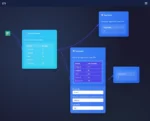Companies are generating more data than ever before.
But with this surge in information comes a critical question: are we using our data strategically, or just storing it? The difference between data hoarding and data empowerment often comes down to one foundational concept—data governance.
For decision-makers and business leaders navigating the chaos of IT buzzwords, data governance isn’t just a trend—it’s a strategic lever.
What Is Data Governance, Really?
Data governance refers to the framework of processes, roles, policies, standards, and metrics that ensures the effective and efficient use of information to support business objectives. It’s not just about compliance or documentation—it’s about empowering organizations to trust their data.
When implemented correctly, data governance turns raw, siloed data into trusted, accessible, and business-ready information. This trust creates clarity in reporting, enables confident decision-making, and becomes the bridge between technical teams and strategic leadership.
Why Strategic Decisions Depend on Governed Data
Strategic decisions require precision. Imagine you’re an executive steering your company through market shifts, regulatory change, or a competitive pivot. You can’t afford to operate with assumptions. Yet without data governance, assumptions creep in. Duplicate entries, unclear definitions, and inconsistent metrics cloud the truth.
A strong data governance program eliminates these pitfalls by aligning your data assets with your operational goals. This means executive dashboards tell the same story across departments, advanced analytics produce meaningful outcomes, and data engineers can build with confidence, knowing the source of truth is reliable.
Data Governance: The Backbone of Analytics and BI
Business Intelligence (BI) and analytics are only as powerful as the data underneath them. Without governance, even the most advanced BI tools become bottlenecks for confusion and rework.
This is where many organizations see the value in advanced analytics consulting services—not just for the algorithms or models, but for building a system where data inputs are clean, contextual, and consistent. Data governance provides the clarity that enables predictive models to produce insights, not noise.
Similarly, BI tools like Tableau or Power BI rely heavily on governed data structures. Partnering with advanced Tableau consulting services doesn’t just unlock better dashboards—it aligns visual storytelling with an enterprise-wide understanding of what the data means. That’s the difference between a flashy chart and a strategic insight.
Building Governance from the Ground Up
Let’s be real—data governance isn’t a one-click install. It requires alignment between stakeholders, clear metadata management, robust pipelines, and reliable storage solutions. This is where data engineering consulting services come into play. Skilled engineers don’t just pipe data—they architect the rules that govern its flow and integrity.
From selecting the right database technologies (like PostgreSQL or MySQL) to designing APIs that serve the right data to the right teams, every layer of your stack either supports governance—or undermines it.
Successful governance frameworks often include:
- Data ownership – Who is responsible for each dataset?
- Data quality rules – How do we measure accuracy and completeness?
- Access controls – Who should see what, and when?
- Glossaries and definitions – Do “revenue” or “conversion” mean the same thing in every department?
These aren’t just IT problems. They’re business challenges that shape everything from quarterly forecasts to customer satisfaction.
Governance as an Innovation Catalyst
Far from being a compliance-only concern, data governance accelerates innovation. When data is trusted and accessible, experimentation thrives. Teams can iterate faster, executives can take calculated risks, and the business becomes more agile.
This agility is especially critical in high-growth companies, where fast scaling can break fragile data foundations. Governance ensures that growth doesn’t come at the cost of clarity.
As you explore modernization efforts—whether through better dashboards, smarter databases, or real-time APIs—remember that governed data is the launchpad. Without it, your insights are guesses and your strategies are built on shaky ground.
Final Thoughts
If you’ve been stuck in the fog of emerging IT jargon, here’s the clear takeaway: data governance isn’t optional—it’s foundational. It’s what separates chaotic data from valuable insight. It’s the reason your dashboards matter. And it’s the bedrock of any digital transformation worth the name.
Investing in proper governance—through aligned engineering, clean pipelines, and strategic visualization—doesn’t just fix problems. It builds a smarter business.
If you’re ready to turn your data into a decision-making machine, start with how it’s governed. And if you’re unsure where to begin, the right consulting partner can bridge the gap between complexity and clarity.
Let’s stop hoarding data and start using it like the asset it is. Learn from our comprehensive data governance guide.

























